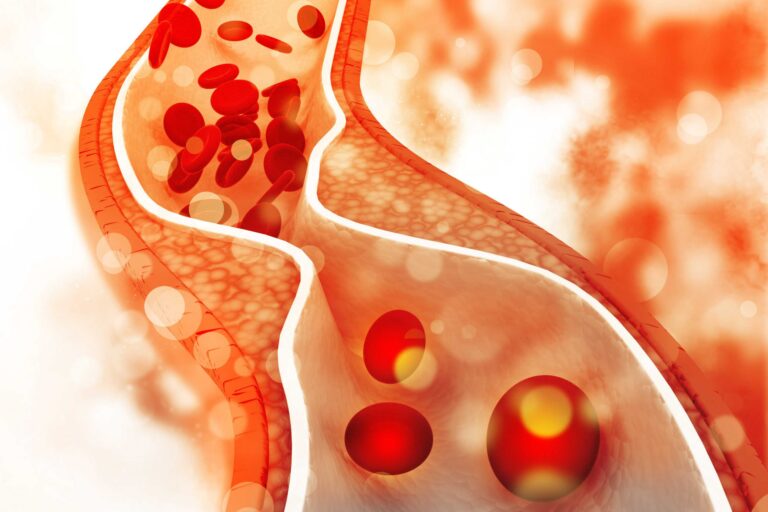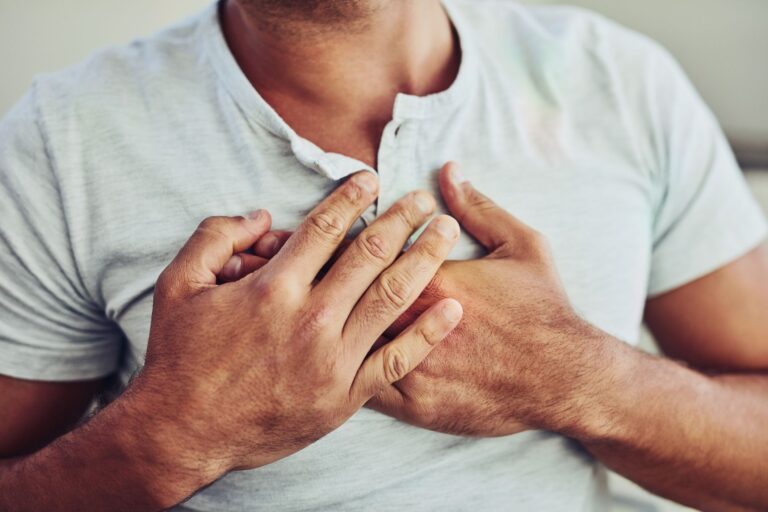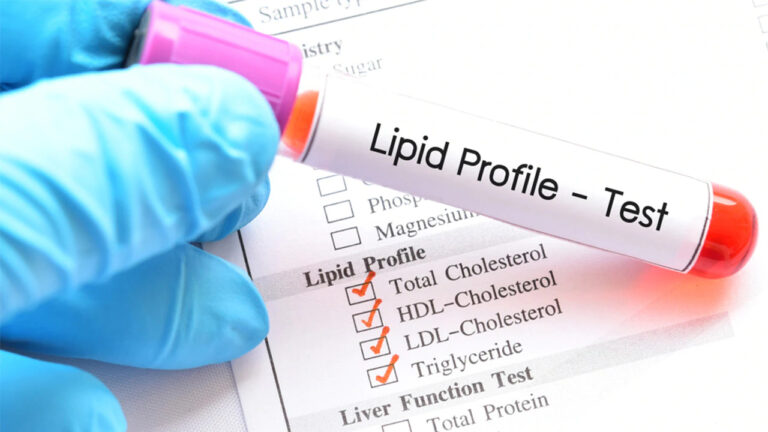WHAT IS HYPERLIPIDEMIA?
High cholesterol level is a common problem among Americans. Almost 1 in 3 people in the United States suffer from high cholesterol levels. This is medically also referred to as hyperlipidemia. A high level of cholesterol indicates you have too many fats in your blood. Even though hyperlipidemia can be acquired, it’s mostly considered the result of lifestyle factors, including unbalanced eating habits and too minimal actual work.

The most well-known kind of hyperlipidemia is high cholesterol. Different types of hyperlipidemia incorporate hypertriglyceridemia and blended hyperlipidemia, in which both cholesterol and fatty oil levels are high.
Your cholesterol can be “dysfunctional” that involves very inflammatory cholesterol particles or an abnormal balance between bad and good cholesterol levels, without being high. Both an elevated degree of cholesterol and expanded aggravation in “typical” cholesterol levels put you at expanded risk for coronary illness.
WHAT CAUSES HYPERLIPIDEMIA?
Cholesterol, a waxy substance, is a sort of fat your body makes. It can likewise come from what you eat.
Food sources that have cholesterol, soaked fat, and trans fats can raise your blood cholesterol level. These include:
- Cheese.
- Egg yolks.
- Fried and processed foods.
- Ice cream.
- Pastries.
- Red meat.
Hyperlipidemia (elevated cholesterol) that is not treated can permit plaque to gather inside your body’s veins (atherosclerosis). This can welcome hyperlipidemia confusions that include:
- Heart attack.
- Stroke.
- Coronary heart disease.
- Carotid artery disease.
- Sudden cardiac arrest.
- Peripheral artery disease.
- Microvascular disease.

WHAT FACTORS INCREASE THE RISK OF HYPERLIPIDEMIA?
Various factors may increase the risk of hyperlipidemia including:
- Smoking.
- Drinking a lot of alcohol.
- Eating foods that have a lot of saturated fats or trans fats.
- Sitting too much instead of being active.
- Being stressed.
- Inheriting genes that make your cholesterol levels unhealthy.
- Being overweight.
Some of the medications that are usually helpful for various medical conditions, can make your cholesterol levels fluctuate, such as:
- Beta-blockers.
- Diuretics.
- Hormonal birth control.
- Steroids.
- Antiretrovirals for HIV.
Some underlying medical conditions can also increase the level of cholesterol. These include:
- Multiple myeloma.
- Polycystic ovary syndrome (PCOS).
- Hypothyroidism.
- Primary biliary cirrhosis.
- Chronic kidney disease.
- Diabetes.
- Lupus.
- Sleep apnea.
- HIV.
HOW TO IDENTIFY HYPERLIPIDEMIA?
In the United States, 94 million individuals over the age of 20 have raised absolute cholesterol levels. This adds up to around 50% of all U.S. grown-ups.
Individuals with untreated hyperlipidemia are two times as liable to foster coronary course infection (CAD) as those with cholesterol levels in the typical reach. This can prompt obstructed conduits, which can set off respiratory failure, stroke, or other significant issues.
For the most part, individuals with hyperlipidemia experience no side effects. Be that as it may, those with familial, or acquired hyperlipidemia, may develop yellow, greasy developments around the eyes or joints. A specialist for the most part recognizes hyperlipidemia during a normal blood test or following a cardiovascular occasion, for example, a coronary episode or stroke.
Extreme development of fat over the long haul can cause atherosclerosis. This is when plaques create on the dividers of the veins and veins and tighten the openings. This can prompt shaky blood to move through the vessels and can extraordinarily expand the gamble of coronary illness and stroke.
HOW WILL A SPECIALIST DIAGNOSE HYPERLIPIDEMIA?
Your primary care physician will utilize your lipid board to make a hyperlipidemia determination. This test decides your cholesterol levels. A healthcare expert will take an example of your blood and send it to a lab for testing, then hit you up with a full report. Your report will show your degrees of:
- Total cholesterol
- Low-density lipoprotein (LDL) cholesterol
- High-density lipoprotein (HDL) cholesterol
- Triglycerides
Some of the other tests to diagnose high cholesterol levels include:
- High sensitivity C-reactive protein (hs-CRP).
- Lipoprotein (a).
- Apolipoprotein B.
- Coronary calcium scan.

HOW TO PREVENT HYPERLIPIDEMIA?
Way of life and dietary choices are significant methods for forestalling and treating hyperlipidemia. Choices incorporate eating a “heart-healthy” diet, taking ordinary activity, not smoking, and keeping a healthy body weight.
- Diet: A healthy eating regimen incorporates limiting the admission of soaked fat, trans fats, and dietary cholesterol, and polishing off an assortment of entire products of the soil, a lot of fiber, lots of water, and entire grain food varieties. Fish, nuts, and vegetables contain “healthful fats” so can give advantages to individuals who need to diminish their LDL cholesterol levels. While utilizing oil, pick olive oil, or one more oil wealthy in monounsaturated fats.
- Weight: Losing weight can help you reduce LDL, total cholesterol, and triglyceride levels. It can also increase the HDL that removes the LDL from the blood.
- Physical Activity: Regular work-out and movement assist an individual with diminishing LDL, raising HDL, and energizing weight reduction.
- Not Smoking: Stopping smoking will bring about higher HDL levels. This might be one motivation behind why the gamble of cardiovascular sickness (CVD) diminishes after an individual quits smoking.
WHAT ARE THE TREATMENT OPTIONS FOR HYPERLIPIDEMIA?
Way of life changes is the principal line of treatment for hyperlipidemia. If these are inadequate, your primary care physician might endorse meds to assist with dealing with your elevated cholesterol.
Some of the things that can help control the cholesterol level include:
- Exercising.
- Quitting smoking.
- Sleeping at least seven hours each night.
- Keeping your stress level under control.
- Eating healthier foods.
- Limiting how much alcohol you drink.
- Losing a few pounds to reach a healthy weight.
Sometimes, you may need medicine to treat your high cholesterol level. This usually includes statins. Your healthcare provider may order a different type of medicine if:
- You can’t take a statin.
- You need another medicine in addition to a statin.
- You have familial hypercholesterolemia, a genetic problem that makes your bad (LDL) cholesterol number extremely high.
OUTLOOK
Hyperlipidemia is a significant gamble factor for coronary illness. It alludes to overabundance levels of LDL cholesterol and fatty oils in the blood. Specialists think about low-thickness lipoprotein (LDL) as awful cholesterol and high-thickness lipoprotein (HDL) as great cholesterol.
Regular active work and an eating routine wealthy in healthful fats can work on the equilibrium of cholesterol in the blood and assist an individual with forestalling related health issues.
If you or anyone you know is suffering from a high cholesterol level, our expert providers at Specialty Care Clinics will take care of your health and help you recover.
Call us on (469) 545-9983 to book an appointment with our specialists.
